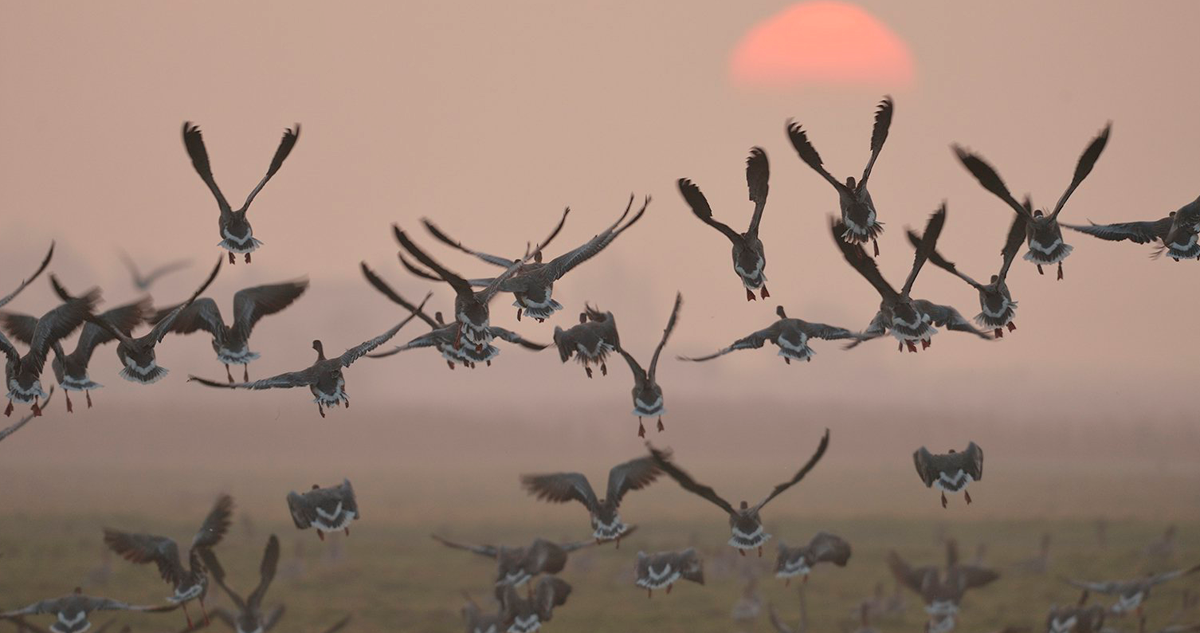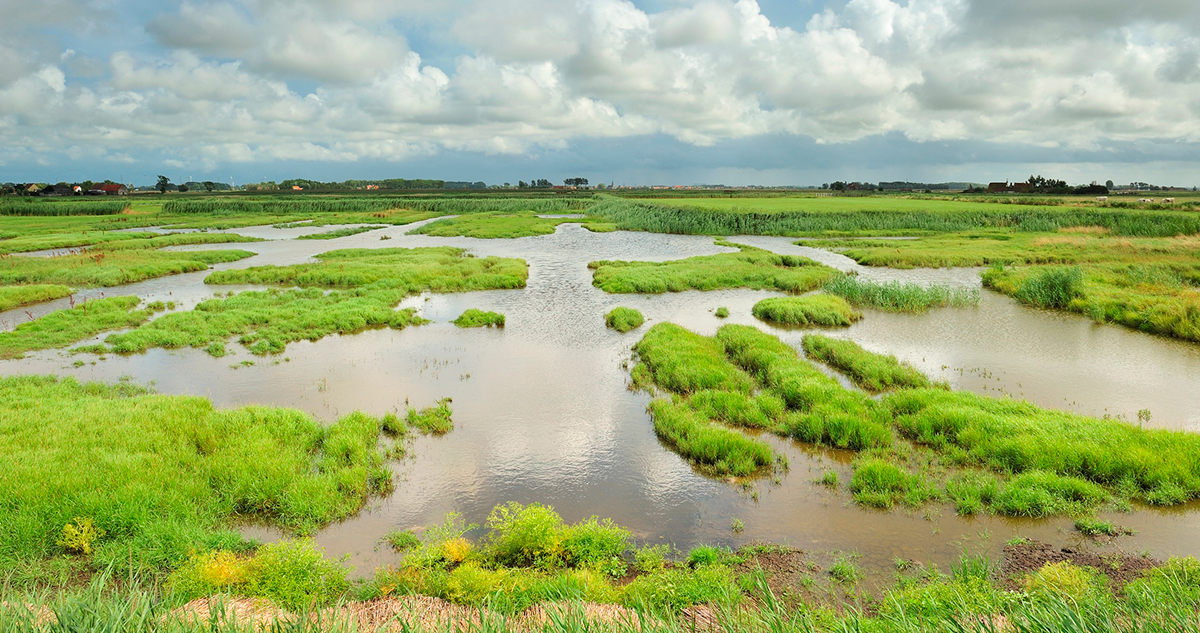When Geert Martens moved across Belgium to settle in the coastal town of Veurne, he knew his binoculars would be put to good use. A small city in the Flanders region that sits at the junction of four canals, Veurne is home to world-renowned waterbirds
— and Martens, a health, environment and safety coordinator at PepsiCo’s Veurne Snack Foods plant, has been an avid birdwatcher since childhood. In his downtime, Martens volunteers as a local nature guide in Veurne, teaching people about
everything from how herons hunt for small fish to where to spot an eagle owl.
“Birds are fascinating,” he explains. “They are keenly aware of dangers — for example, the moment you notice all the smaller birds are gone, you know there’s a bird of prey nearby.”
Sadly, the birds of Veurne, as well as those across the rest of Belgium’s Flanders region, are facing a growing danger they won’t be able to fly away from. The area has low levels of freshwater, the result of climate change and intensive agriculture
projects that have taken place over many decades. This water shortage has impacted not only scores of native and migratory birds, but also farmers and residents. For farmers, the consequences have been especially dire: Livestock have died from drinking
water contaminated by salt, and crop yields have been reduced. For residents, water-use restrictions have become part of daily life. Freshwater scarcity is a growing problem globally as well. According to the World Wildlife Foundation, two-thirds
of the world’s population may face water shortages by 2025, which could lead to disease, diminished food resources and destroyed ecosystems.

PepsiCo is committed to improving the health of watersheds wherever it operates. To do so in Flanders, the company has partnered with Belgian NGO Natuurpunt on two long-term projects. Their rehabilitation of a pair of nature preserves — De Blankaart,
near the Veurne snacks plant, and Uitkerkse Polder, neighboring PepsiCo’s Zeebrugge manufacturing plant — is part of the company’s commitment to improving the area’s freshwater resources. PepsiCo is also pledging to implement
new processes, like water recycling, with the global goal of replenishing 100% of the water used to run its plants in high water-risk areas by 2025.
“To safeguard water for the future, we need to restore the freshwater level in this area,” explains Wim Destoop, VP and General Manager of PepsiCo, North West Europe. “We have committed ourselves to being a sustainable company —
and we want to be at the forefront of that journey.”
Much of the work that will take place during PepsiCo’s five-year partnership with Natuurpunt is deceptively simple: creating pools and trenches to allow rainwater to sink into the ground and remain uncontaminated by salt water. It can then be collected
and treated for uses such as irrigation. At Uitkerkse Polder, in addition to creating new ditch patterns, solar-powered pumps will be installed to control water levels, preventing runoff and saltwater seepage.

Another key area of focus: recreating meadows and grasslands previously damaged by development. Natuurpunt plans to examine old sketches and topographical maps of the area in order to determine how they can use excavation and other land management tools
to return the terrain to its former glory. The goal is to restore hundreds of acres of land, which will make it easier to manage water flow and mitigate runoff. As part of its stewardship, Natuurpunt buys all of the land it preserves, meaning they
can continue to care for the region for generations to come.
“These projects are very important for food production, agriculture, biodiversity and the whole of society itself,” says Filip Hebbrecht, an account manager at Natuurpunt who handles private sector partnerships.
For Martens, who has been with PepsiCo for ten years, it feels fulfilling to work for an organization that’s investing in his community, both now and for the future. “It’s a very good thing,” he says. “And it’s also
a signal to the rest of the world that this is a company that does something to give back.”